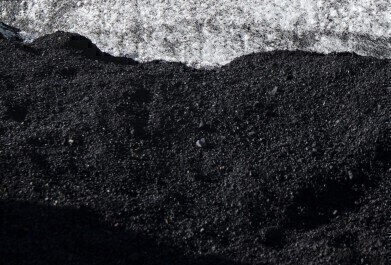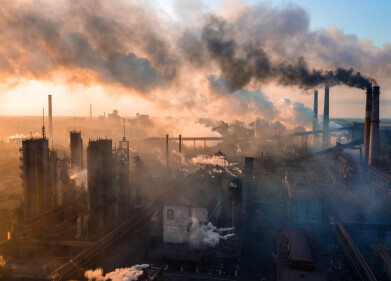Fuel for Thought
What is Petcoke? And What is it Used For?
Feb 06 2015
North American production of petroleum coke or petcoke, as it’s commonly known, has been steadily increasing since the late 80s. But innovations in bitumen extraction have allowed petcoke production to shoot up in recent years, and U.S. exports of petcoke have risen by the barrel load: 184 million barrels in 2012, to be precise.
So, what exactly is petcoke, and what is it used for?
Petcoke is a byproduct created when bitumen found in tar sands, like those in Alberta, Canada, is refined into crude oil. Bitumen contains a higher number of carbon atoms than regular oil and it’s these atoms, extracted from large hydrocarbon molecules using heat, that go on to form petcoke.
High grade petcoke which is low in sulphur and heavy metals can be used to make electrodes for the steel and aluminum industry. But the majority of petcoke manufactured globally, approximately 75-80%, is of a much lower grade, containing higher levels of sulphur and heavy metals and is used solely as fuel. The majority of petcoke produced in the U.S. is exported to China – the world’s largest consumer of coal – to feed its many coal-fired power stations.
Environmental implications
Petcoke is an extremely stable fuel which means there is little risk of combustion during transportation, but due to its high carbon content when it does combust it releases up to 10% more CO2 per unit of energy that normal coal. That’s higher than almost any other energy source in existence and makes petcoke a huge contributor to the creation of greenhouse gases.
It’s not just carbon that makes petcoke an environmental concern. Increased pollution controls are required during petcoke combustion to capture the excess sulphur found in low grade petcoke. The heavy metal content of petcoke has also left many worried, both at the effects of releasing it into the air when petcoke is burned, and the implications it has for the local environment during storage. This is a particular concern for environmental campaigners in Chicago, where large amounts of dusty petcoke from nearby refineries are stored uncovered, although studies by North American petcoke producers indicate that the risk to the human respiratory systems is no different to regular coal.
Despite the environmental concerns connected to the manufacture and use of petcoke, it remains popular due its cost effectiveness. It’s inexpensive to manufacture yet easily exported, and provides an attractive source of cheap fuel for developing nations. As long as this win-win relationship between importer and exporter continues, it’s unlikely that we’ll see production slow any time soon.
Learn more about oil
If you’d like to learn more about the oil, take a look at this introduction to the different types of crude oil or the four categories of crude oil toxicity.
Digital Edition
PIN 25.1 Feb/March
March 2024
In This Edition Safety - The technology behind the ION Science Tiger XT - Safety with ammonia and LOHCs as hydrogen carriers Analytical Instrumentation - Discussion on new tribology te...
View all digital editions
Events
Apr 22 2024 Hannover, Germany
Apr 22 2024 Marrakech, Morroco
Apr 22 2024 Muscat, Oman
Apr 22 2024 Rotterdam, Netherlands
Apr 23 2024 Singapore


















